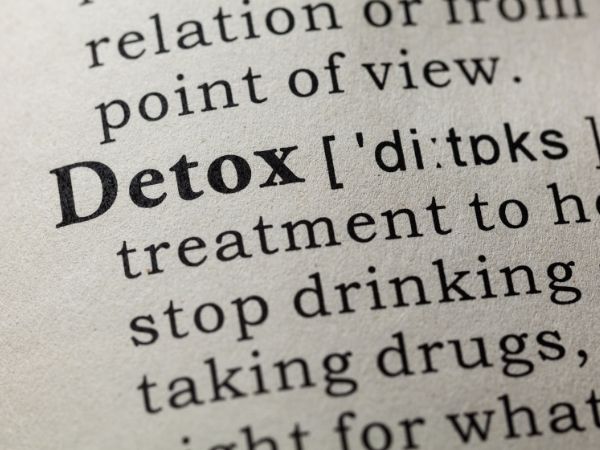When beginning the recovery journey, the first step for many is entering a detoxification program. Detoxification can be an overwhelming process for many clients, and that is normal. Clients may experience withdrawal symptoms, discomfort, or even mental-emotional challenges. However, through medical detox for alcohol addiction, clients can feel safe, secure, and supported through the process.
After detoxification, it is important to survey the next steps in the recovery journey. This is supported by doctors and specialists who observe one’s medical history, life experiences, home life, and addiction history in order to curate a proper, and effective recovery plan. Recovery is a personal and unique journey, and the treatment plan for each client is individualized for their specific needs and requirements. At Buena Vista Recovery, medical detox and treatment for alcohol addiction provide clients with guidance, support, and safety in establishing and securing lasting sobriety.
What Is Medical Detox for Alcohol Addiction?
Medical detox for alcohol addiction offers a safe, guided way of detoxifying the body of harmful substances. When detoxification is attempted without professional guidance, there are a number of dangers that can occur depending on a number of factors. The amount of alcohol abused, the length of the addiction time frame, physical characteristics, and existing medical conditions all play a role in the intensity of withdrawal symptoms. However, a medically guided detoxification process takes all of these factors into account and offers each client a safe space to begin healing.
What Challenges May I Encounter While Detoxing?
Especially early in the detoxification process, clients may experience withdrawal symptoms, including both mental-emotional challenges as well as physical symptoms. Mild symptoms can start as early as a few hours after the client’s last drink. Alcohol acts as a depressant on the body and brain, and suddenly stopping consumption puts the body into a state of shock as it attempts to rebalance brain chemicals. This leads to withdrawal symptoms.
Some of the most common withdrawal symptoms that clients may experience during detox include:
- Confusion, tremors, psychosis, or hallucinations
- Anxiety
- Insomnia or extreme fatigue
- Depression
- Seizures
- Dehydration
- Nausea, diarrhea, vomiting
- Body aches
- Irritability
- Mood swings
Additionally, some clients may experience delirium tremens, which usually occurs two to five days after one’s last drink. This may cause confusion, fear, shaking, or high blood pressure. Delirium tremens typically affect about 50% of clients who have had withdrawal seizures. Beyond mild symptoms, symptoms can become more severe 12 to 48 hours after one’s last drink. Most severe symptoms can last up to 72 hours following the initial cessation of alcohol use.
Support Systems at Buena Vista Recovery During Medical Detox for Alcohol Addiction
With a medical detox for alcohol addiction at Buena Vista Recovery, clients can minimize their symptoms. Specialists at the facility help clients ease their pain, discomfort, and intense cravings when detoxing. Receiving support in a medically guided detox process helps in reducing the intensity of withdrawal symptoms, decreasing the intensity of alcohol cravings, minimizing the risk of continued substance use or relapse, and improving clarity and focus on recovery.
The Next Steps After Detoxification
There are a number of treatment options for alcohol addiction. These include medicated treatments, behavioral treatments, and support groups. For medicated treatments, the medications provided are nonaddictive and are often used alongside other treatment options. Behavioral treatments often use counseling or talk therapy approaches to redirect thought processes in order to produce healthy behaviors. Lastly, support groups provide clients with mutual peers to offer guidance, support, security, and hope.
It is important to note that detoxification only targets physical symptoms of addiction and does not help the client heal mentally or emotionally. Without participating in a treatment program following detoxification, clients have a higher risk of relapsing.
Treatment Options to Consider After Medical Detox for Alcohol Addiction
Following medical detox for alcohol addiction, clients may start any of the following treatment programs:
- Inpatient/residential treatment
- Partial hospitalization
- Intensive outpatient treatment
- Medication-assisted treatment
- Outpatient treatment
Residential and intensive outpatient programs are very common treatment pathways clients take. Inpatient alcoholism treatment takes place at our Buena Vista facility. This program provides clients with a structured environment for healing with access to safe medical care. A daily plan is implemented and includes meals, recreation, therapy, and other services. Inpatient treatment allows clients to separate themselves from their current living environments, have a structured daily routine, and access on-call medical care and assistance.
Intensive outpatient treatment provides clients with additional recovery support without 24/7 supervision. Some clients are unable to disrupt their daily lives to partake in an inpatient program but still need access to counseling, therapies, and other services. This program offers more guidance to the recovery process than a typical outpatient program does. Treatment in this program is still highly structured as well.
There are a number of therapy options offered at Buena Vista Recovery after medical detox for alcohol addiction. Some of the therapy options we offer include:
- 12-Step programs
- Cognitive-behavioral therapy (CBT)
- Grief therapy
- Group therapy
- Individual counseling
- Trauma-focused therapy
Moreover, clients in all of our treatment programs have access to these therapies throughout their entire treatment journey.
At Buena Vista Recovery, we provide clients looking to overcome alcohol addiction with a medical detoxification program. This program offers support, guidance, and structure to the detox process. Detox can be an overwhelming process with many challenges, including severe withdrawal symptoms. Here, doctors and specialists supervise the detoxification and ease any symptoms, discomfort, or pain. Following detox, it is important to participate in a treatment program in order to continue with guided care for the most optimal recovery results. Some programs include inpatient and outpatient treatments at Buena Vista among many others. These programs offer different benefits that are dependent on the client’s needs while still offering a number of therapies. Call us at (480) 741-9414 for more.




